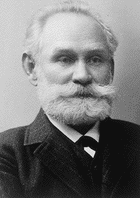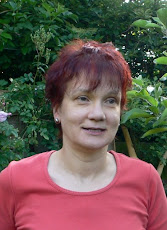
Wednesday, 24 December 2008
Friday, 19 December 2008
Refocusing the care programme approach: Policy and positive practice guidance
Following the national consultation, Reviewing the Care programme Approach (CPA), and having considered the issues identified, this guidance updates policy and sets out positive practice guidance for trusts and commissioners to review local practice to refocus CPA within mental health services.
Mutual Caring Project: Supporting older families who are looking after each other
Lots of people with learning disabilities live at home with their older family carers, usually their mum or dad, brother, sister or grandparents. Although their carers still do lots to look after them, lots of people with learning disabilities do a lot to help look after their older carer too. When everyone is looking after each other, this is called ‘mutual caring’.
Lots of people don’t get the help they need when they are carers. Lots of workers don’t realise that mutual caring is happening in older families. Lots of people do not realise that people with learning disabilities can be carers too.
There are many things people can do to support older families where mutual caring is happening. This project aims to raise awareness about mutual caring and the different things that people can do to support older families.
 Download - [944 KB]Introduction
Download - [944 KB]Introduction Download - [527 KB]Part 1: Am I a carer?
Download - [527 KB]Part 1: Am I a carer? Download - [1.37 MB]Part 2: What are my rights?
Download - [1.37 MB]Part 2: What are my rights? Download - [1.09 MB]Part 3: Having a carers assessment?
Download - [1.09 MB]Part 3: Having a carers assessment? Download - [701 KB]Part 4: What help can I get?
Download - [701 KB]Part 4: What help can I get? Download - [1.40 MB]Part 5: Getting ready for my carers assessment
Download - [1.40 MB]Part 5: Getting ready for my carers assessment Download - [403 KB]Part 6: Guidance for supporter
Download - [403 KB]Part 6: Guidance for supporter
Tuesday, 16 December 2008
A hard rain's a gonna fall...

LightDrops is an umbrella that uses the piezoelectric effect of polyvinylidene fluoride (PVDF) to transform falling rain into electricity, which is then used to light LEDs installed on the umbrella's underside. The heavier the rain falls (and the harder it hits the umbrella), the brighter the light shines.
Friday, 12 December 2008
Thursday, 11 December 2008
Local authority support for adults with autism
As part of the National Autistic Society (NAS) I Exist campaign, all local authorities in England were asked if they have a system in place to record the number of adults with autism in their area and if, in line with Department of Health guidance, they have appointed a named individual or team with responsibility for autism.
With the support of thousands of campaigners who have contacted their local authority to raise these demands, the NAS have now received a response from over two thirds of local authorities.
A table has been produced this week and progress is indicated according to the following key:
- green indicates progress in the area in question
- amber indicates a recognition of the issues and a willingness to address these
- red indicates no evidence of progress in the relevant areas
- purple indicates that the NAS have not yet received a response from the local authority.
Monday, 8 December 2008
Clear Thoughts Website

It will try to make the information as easy to understand as possible.
This is a website for three groups of people.
1. People who have a learning disability
2. Their families and carers
3. Professionals and those supporting people and families
to access the website follow this link
http://www.clearthoughts.info/
This website also comes with Browsealoud. This means you can hear the words on the website. Follow this link for more information Browsealoud page.
Friday, 5 December 2008
Thought for the day.......
"It is thus that a few rare lucid well-disposed people who have had to struggle on earth find themselves at certain hours of the day or night in the depth of certain authentic and waking nightmare states, surrounded by the formidable suction, the formidable tentacular oppression of a kind of civic magic which will soon be seen appearing openly in social behavior."
Antonin Artaud 1947
Commissioning specialist adult learning disability health services - Good practice guidance
Good practice guidance on the commissioning of specialist adult learning disability health services for adults.
Consideration has been given to assist in responding to shortcomings identified in these services in recent Healthcare Commission reports including those into abuse in Cornwall and Merton and Sutton.
Within the current environment of separating out purchaser and provider arms of PCTs services are currently debating who should employ specialist learning disability staff - another health provider, mental health trust, social services, social enterprise....
The report states that:
"Specialist learning disability health staff are most likely to be employed within the local NHS, with those not in in-patient settings, operating as part of, and being accountable within, a multi-disciplinary structure such as a community learning disability team (CLDT) that is led or jointly led by the local authority.
Employment within the NHS alongside other health professionals is important in order to maintain appropriate clinical governance, professional development, relationships and learning from colleagues working in other specialisms and to avoid recruitment and retention problems. However, day-to-day operation within a multi-agency framework is essential for the achievement of good person centred outcomes. Being recognised as part of the NHS is particularly important for staff working to promote access to mainstream primary care and acute hospitals in order to facilitate day to day working relationships with NHS colleagues."
To download the report
Wednesday, 3 December 2008
VIEWPOINT - published by MENCAP
Viewpoint - the learning disability magazine
Viewpoint is the UK’s leading learning disability magazine, published by Mencap. It captures all the news, campaigns and best practice from the world of learning disability.
Viewpoint is published six times a year. An audio version of the magazine is available on CD – available free to people who have a learning disability.
Pulse, Viewpoint's arts and leisure supplement, comes free with the issue, three times a year.
Read the latest stories, download the latest issue or read past issues by clicking on the links below:
Viewpoint – read the latest issue
Pulse – the arts and leisure supplement
AUTISM - Royal Society of Medicine Conference
Autism
Monday 23 March 2009
Venue: The Royal Society of Medicine, 1 Wimpole Street, London, W1G 0AE
organised by the Royal Society of Medicine in association with General Practice with Primary Health Care Section, Paediatrics & Child Health Section, Intellectual Disability Forum and the Psychiatry Section
Speakers to Include:
Professor Ann Le Couteur,
Professor of Child & Adolescent Psychiatry, Newcastle University
Professor Tony Holland,
Health Foundation Chair in Learning Disability, Department of Psychiatry, University of Cambridge
Dr Declan Murphy, Psychological Medicine & Psychiatry, Institute of Psychiatry, London
Professor Patricia Howlin, Professor of Clinical Child Psychology, Institute of Psychiatry, London
For more information and to book please CLICK HERE
Tuesday, 2 December 2008
Disability Equality Duty Reports published 1st December 2008

The Government has today highlighted progress towards achieving its ambition of equality for disabled people by 2025 with the publication of a series of reports from 11 Secretaries of State, the Office for Disability Issues’ (ODI) annual report and additional research about the Disability Equality Duty.
The reports by the 11 Secretaries of State are the first of their kind. They identify progress towards disability equality made by each department and where there are still issues to address. They also show how departments and public bodies will work strategically to introduce mechanisms for change. The ODI has produced an overview of the Secretary of State reports, highlighting key findings from each.
To access all 11 reports click here reports
To download the report for health and care services
Download Secretary of State for Health report on Disability Equality (PDF, 1461K)
Monday, 1 December 2008
PMLD Network
The PMLD Network
The PMLD Network is a group of people committed to improving the lives of people with profound and multiple learning disabilities (PMLD).
People with PMLD are unique individuals but sometimes it is helpful to talk about groups of people:
- Who have common concerns
- Who have distinctive needs
- Who face barriers to being included
- Who need help to fight for their equal rights
The PMLD Network brings people with PMLD and their families, carers and advocates together with statutory and voluntary agencies, to share good practice, to campaign and to provide information and support.
The aim of the PMLD Network is to make sure people with PMLD are fully included in society.
To access the PMLD Website CLICK HERE
Read the PMLD Network definition of profound and multiple learning disabilities (PMLD)











.png)










